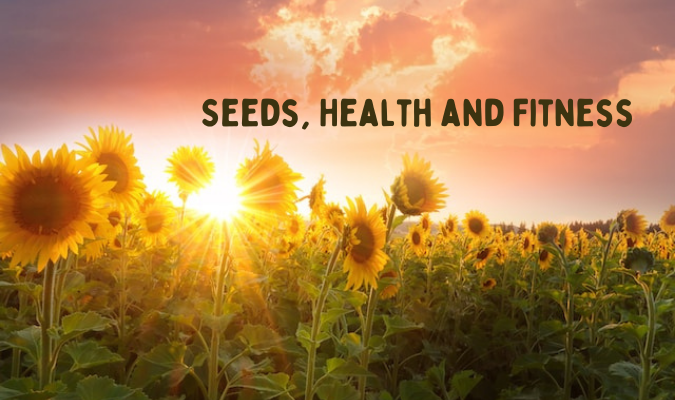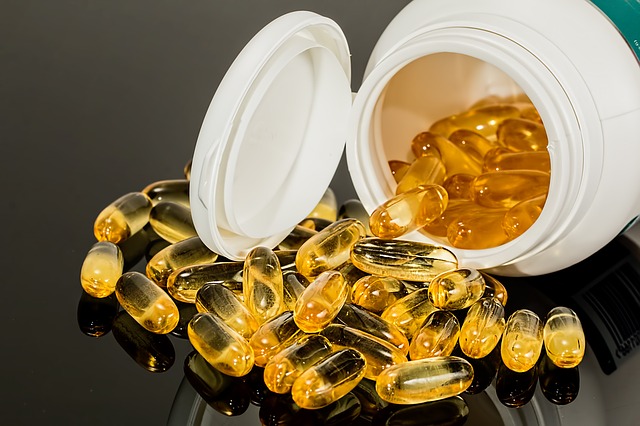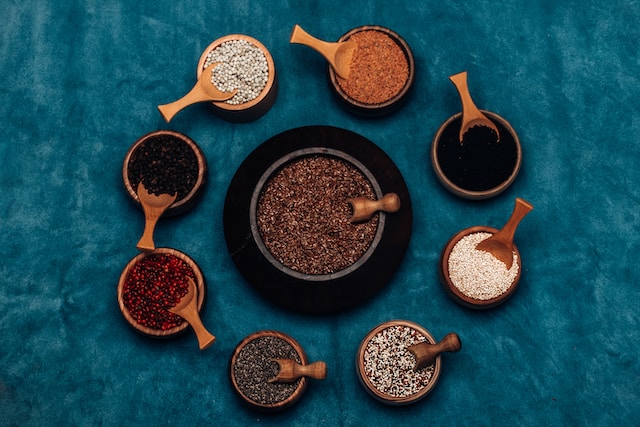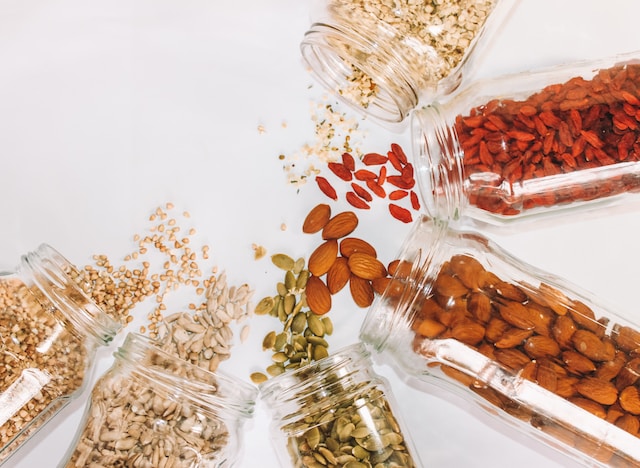Why Eat Seeds? How Edible Seeds Help Your Health and Fitness

I’m already a fan of pumpkin and sunflower seeds, but after going down the rabbit hole on seeds and fitness – I definitely need to add some more varieties.
Seeds are packed with nutrients and minerals which provide health benefits.
This page starts with the key ingredients. After that there is a list of the seeds which give you the best ratio of goodness per gram.
Key Nutrients and Minerals Found in Seeds:
Source of Non-Animal Protein:
Seeds are a good source of plant-based protein. This is important for tissue repair, muscle building, and overall body function. While they won’t beat meat or soy gram-for-gram, extra protein boosts fitness – especially as we age.
Seeds Contain Dietary Fibre:
Seeds are rich in dietary fibre. This helps with digestion and feeds the good bacteria in your gut. That microbiome is linked to health in multiple ways (including a correlation to chronic diseases). Looking after your microbiome should be a priority for everyone.
Omega-3 and Omega-6 Oils:
You’ll need specific seeds to boost your Omega-3 fatty acids. They include chia seeds, flaxseeds, and sunflower seeds. This ‘good fat’ is linked to brain health, cardiovascular health, and an overall reduction in inflammation.

Seeds Contain Vitamins Including B-Complex and E:
Seeds contain a variety of vitamins, including vitamin E. This is a a powerful antioxidant. You’ll also get your B-vitamins. There are several compounds in this group, including niacin, folate, and riboflavin. All are important for cell health and energy production – key components of fitness.
Minerals Found in Seeds:
You’ll find a lot of different essential minerals in seeds – many of these are vital to overall health and fitness.
- Calcium: Best known for promoting healthy bones and teeth, also involved in nerve function.
- Iron: Without this, getting oxygen distributed around the body is impaired – vital for energy.
- Magnesium: Important for cellular signalling in muscles and nerves, boosts bone health.
- Zinc: This mineral is involved in immune health, wound healing and even DNA production.
- Selenium: Another seed-based mineral that boosts immune health, also an antioxidant.
Seeds are Rich in Antioxidants:
Several antioxidants were listed above. This is a class of compound which protects your cells from free radicals and oxidative stress – helping protect and repair DNA. This boosts health over the long term.

But Wait, There’s More!
This list of the health and fitness benefits of seeds is already impressive enough. It is not finished yet. There are classes of compounds in certain seeds which boost your health further. They include phytochemicals, phytosterols, lignans and probiotics. I’ll make a note to do a deep dive into these for a future article here at Fitness Review.
Seed-by-Seed: Which Seeds are the Most Nutrient-Dense?
While you won’t get every benefit from every seed – some edible seeds are definitely more nutrient-dense than others. This list is (roughly) in order, with Chia and Flax seeds giving you the most benefits per gram.
#1 Chia Seeds:
Chia seeds are rich in fibre, omega-3 fatty acids, protein, calcium, magnesium, and antioxidants. They are also a solid source of iron and phosphorus.
#2 Flaxseeds (Ground):
You need to grind Flaxseeds, otherwise you won’t digest the good bits. They are high in fibre, omega-3 fatty acids (in the form of ALA) and contain lignans. Flaxseeds are a source of B-vitamins, magnesium, and manganese.
#3 Hemp Seeds:
Not on my radar until researching this page, but it turns out that Hemp seeds are a complete source of protein, providing essential amino acids. They’re also rich in omega-3 and omega-6 fatty acids, fibre, vitamin E, magnesium, and even potassium.

#4 Pumpkin Seeds:
Pumpkin seeds are a source of protein, healthy fats, magnesium, zinc, iron, and antioxidants. They also contain a high amount of fibre. Better still, they are a delicious addition to a healthy salad.
#5 Sunflower Seeds:
Sunflower seeds are high in vitamin E, this antioxidant protects cells from damage. They also provide a good amount of protein, healthy fats, and minerals including magnesium, selenium, and copper.
#6 Sesame Seeds:
Sesame seeds are rich in healthy fats, including both monounsaturated and polyunsaturated fats. They’re also high in minerals such as calcium, magnesium, iron – and B complex vitamins.
#7 Pomegranate Seeds:
While not technically a seed, Pomegranate seeds are packed with antioxidants, particularly polyphenols, and are a good source of vitamin C, vitamin K, and fibre.

I’d love to include some recipes and ways to boost your seed input – but this site is about fitness and the page is already packed with information.
My seed consumption is set to rise after going down this rabbit-hole, how about yours?
More Popular Pages this Month:
- Best Water Rower (the most popular models for different budgets)
- Electrolytes and Your Fitness
- Staying Healthy While Eating Out